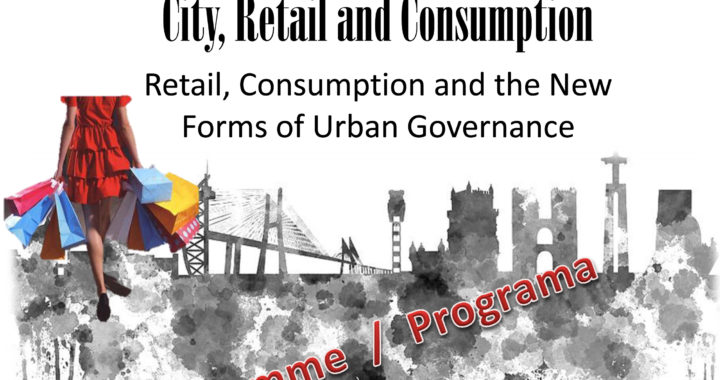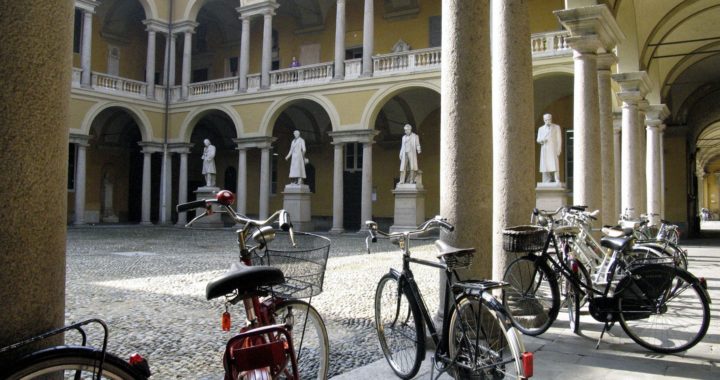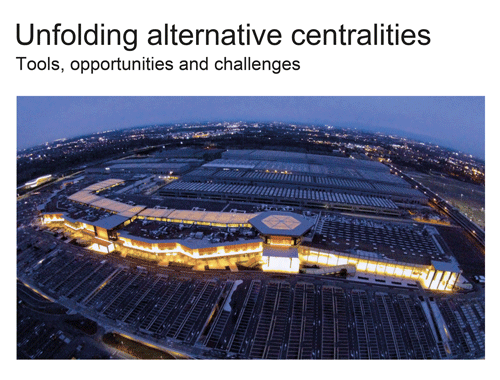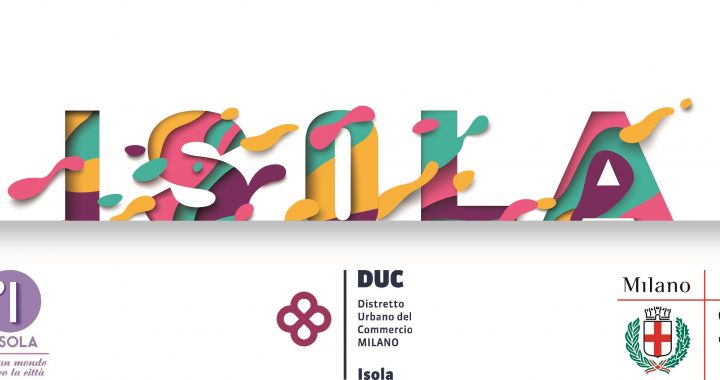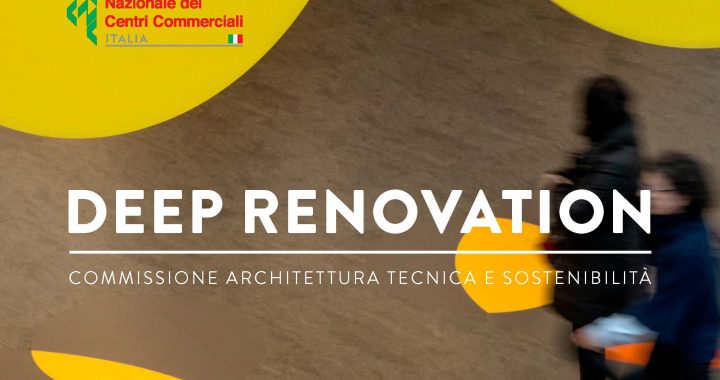IV International Seminar City, Retail and Consumption_Lisbona (P)_12-15 settembre 2017
Nei giorni 12-15 settembre a Lisbona si terrà la VI edizione del seminario Internazional City, Retail and Consumption, da titolo “Retail, Consumption and the New forms of Urban Governance”. Alcuni membri del laboratorio URB&COM parteciperanno alle attività programmate, presentando l’esito di ricerche recenti.
Merc. 13 settembre – Asse II: The new entrepreneurial logic of retail and services and the challenges they pose to scientific research and urban policies, h. 11.00-12,45
TITOLO: “Mapping deadmalls landscape: how VGI support research and actions on abandoned retail heritage“
AUTORI: Giorgio Limonta, Gabriele Cavoto, Mario Paris
ABSTRACT: “
Over the last two decades, Italy experimented on one hand a deep transformation in retail sector, due to a process of deregulation, which stimulated the growing of retail chains, the attraction of foreign capitals and the modernization of retail networks, and, on the other hand, the impacts of the economic crisis, which affect consumption practices and users’ behaviours. The combination of these factors and the consequent evolution – in number, dimensions and formats – of retail poles (Brunetta & Morandi, 2009) generated a strong territorial competition for urban/metropolitan areas with a progressive market saturation that, amongst other effects, accelerates the obsolescence of older settlements.In U.S., similar trends caused a selective process for a number of big box stores and shopping malls, and in several cases, they result in the appearance of deadmalls and ghostboxes. Italy is on the first phase of this process, where the number of these “retail greyfields” is increasing and where scholars and public actors are becoming aware of their territorial presence that, due to their mass and landscape impacts represent a sort of landmarks of retail abandon (Cavoto, 2014). The group of Italian deadmalls is composed by an heterogeneous set of elements, where together with timeworn settlements, also recent structures appear, sometime unfinished or just partially completed. They all belong to an increasing stock but is difficult to provide reliable data at regional or national scale.
In recent times, several authors, described those new italian landscapes of economic desertification (Turri, 2000; Cavoto, 2014; Inti, Cantaluppi, Persichino, 2014; Minelli, 2015). Unfortunately, they provide just fragmentary descriptions and not interpretative readings of the phenomenon. One of the cause could be the lack of a shared knowledge, based on exhaustive information and institutional data. This deficit imposes a reflection about the role of alternative databases based on alternative sources in the research about retail dismantling and depletion of local economic systems.
The aim of this contribution is reflecting on the opportunities related with the involvement of Volunteered Geographic Information (VGI) on this issue (Goodchild, 2007), especially when related with the platform OpenStreetMap (OSM) and presenting an original methodology of spatial analysis and territorial monitoring. This approach, developed within the URB&COM Lab of Politecnico di Milano is an useful tool for the collection and the classification of data, and is especially effective for the stock of closed, abandoned or dismantled structures. The methodology allows to set up a shared geography of dismantled retail activities both in urban and suburban contexts, and has been the starting point for several recent research related with the monitoring of urban retail systems (Limonta and Paris, 2016)”.
Gio. 14 settembre – Asse II: The new entrepreneurial logic of retail and services and the challenges they pose to scientific research and urban policies, h. 09.00-11,45
TITOLO: “Trends, risks and opportunities in current luxury-driven transformations in cities“
AUTORE: Mario Paris
ABSTRACT: “Historically, urban aristocracy and, after the industrial revolution, a growing upper-middle class based on bourgeois citizens have been reference targets for producers and retailers of luxury goods. For this reason, and luxury-consumption and its impacts on economy and customers’ behaviors have been fields largely explored by many different fields (as geography, philosophy, management, marketing and economics, psychology, architecture and tourism); all these contributions underlined its consolidate relationship with urban culture. This issue is even more evident considering that not only luxury market (for goods, real estate, services) but also luxury productions (art, artisanship, design, creative productions, etc.) belong to the urban domain. Despite this strong connection with the city, luxury has been largely ignored as a topic in urban studies and planning research; or worse, it has been discussed in rather ideological and mono-directional terms (“all about gentrification”). This pre-conceived attitude prevents the exploration of potentials and innovations related with this topic. This lack is particularly serious today, when luxury, as economic sector and as system of values, involves a set of practices that affect the spatial dimension and, therefore, influences the transformation of contemporary territories and the creations of specific lifestyles as well as it impacts on the everyday life of inhabitants and space users, although they are not luxury consumers.The aim of this contribution is presenting the outcomes of a research focused on the recent urban interventions developed by luxury stakeholders, and pointing out several specific features of their actions. Therefore, they exceed the simple retail or real estate approach, developing placemaking strategies and a role as urban agents following some recent trends (from exclusiveness to prestige, masstige, etc.). For this reason, operators and practitioners belonging to this sector show a renovate interest for values and characters of places, they focus on the provision of services and experiences and not only of goods, and they use urban design, art and culture as tools for their global branding. At the same time, their actions have different social, economic and spatial impacts on the city, and a focus on recent cases study points out risks and opportunities related with these operations. In some luxury-driven intervention, it emerges a reinforcement of differences and boundaries within the city, in other cases, inverse processes of opening -sometime temporarily – of gated spaces to the urban population. Sometimes, designed transformations acting as a catalyst for urbanity and regeneration, in others they emphasize processes of polarization. In the conclusions, several open questions about governances will be pointed out and about if (and how) these interventions can produce urban values and competitive advantages for their contexts, and not only economic benefits for developers involved”.
Inoltre durante l’evento “incontro con gli autori” di giovedì 14 (h. 16.00-18.00) verrà presentato il libro “Making Prestigious Places. How luxury influences the transformation of cities“, edito da Mario Paris e pubblicato da Routledge.
Per maggiori informazioni riguardo all’evento, all’organizzazione ed alla rete internazionale di ricercatori coinvolti, si consiglia la visita al sito ufficiale del seminario, al seguente link.
Continua→
